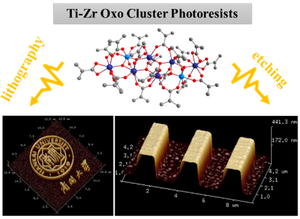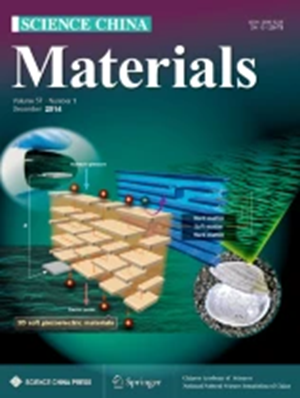Heterometallic Ti-Zr oxo nanocluster photoresists for advanced lithography
Abstract
Extreme ultraviolet lithography (EUVL) and electron beam lithography (EBL) are considered to be crucial lithography techniques utilized in the fabrication of nanoscale semiconductor devices. However, the industry currently faces a scarcity of EUV photoresists that meet the increasingly challenging standards in terms of resolution, sensitivity and roughness. Metal oxo nanoclusters have garnered significant interest in the field of EUV photoresist due to their relatively stronger absorption cross-section for extreme ultraviolet light and lower dimensions. In this study, we utilize a heterometallic nanocluster strategy by a combination of titanium and zirconium metals to investigate their solubility, assess the suitability of various developers, and evaluate their performance in electron-beam and EUVL, as well as study their etch resistance for pattern transfer. We demonstrate that R-4 is able to get a critical dimension (CD) of 25 nm at low doses under EBL, as well as 50 nm resolution at EUVL with a remarkable sensitivity of 19.7 mJ cm−2. This study offers an efficient heterometallic method for optimizing the lithographic performance of metal oxo nanocluster photoresists, which can benefit the development of commercially viable next-generation EUV photoresists.


 求助内容:
求助内容: 应助结果提醒方式:
应助结果提醒方式:


